
Distinguished Lecture Series 2014/15
| Speaker | Title | Date | Venue |
|---|---|---|---|
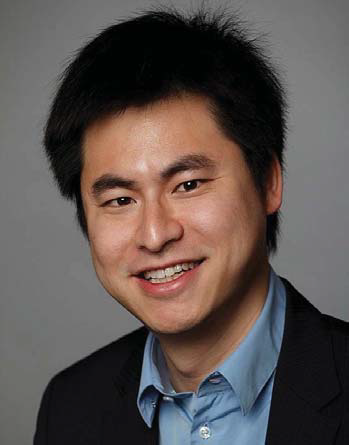 Prof. Yu Zheng Prof. Yu ZhengBiography Prof. Yu Zheng is a lead researcher from Microsoft Research and a Chair Professor at Shanghai Jiao Tong University, passionate about using big data to tackle urban challenges. His research into urban computing has attracted a broad range of attention from the community, receiving five best paper awards at prestigious conferences (such as UbiComp’11, ICDE'13, and ACM SIGSPATIAL’11) (H-Index 33). Zheng is a member of Editorial Advisory Board of IEEE Spectrum. He has served as chair on 10 prestigious international conferences—most recently, as the program co-chair of ICDE 2014 (Industrial Track). He has been invited to give over 10 keynote speeches at international conferences and forums (for example, IE’14 and APEC 2014 Smart City Forum) and guest lectures in universities like MIT, CMU, and Cornell. Zheng has been featured multiple times by influential journals, such as MIT Technology Review and New Scientist. In 2013, he was named one of the Top Innovators Under 35 by MIT Technology Review (TR35) for his research on using data science to solve urban challenges. He was featured by Time Magazine due to his research on urban computing in November 2013. In 2014, he was named one of the Top 40 Business Elites under 40 in China by Fortune Magazine, because of the business impact of urban computing he has been advocating since 2008. Refer to his homepage http://research.microsoft.com/en-us/people/yuzheng/. Prof. Yu Zheng is a lead researcher from Microsoft Research and a Chair Professor at Shanghai Jiao Tong University, passionate about using big data to tackle urban challenges. His research into urban computing has attracted a broad range of attention from the community, receiving five best paper awards at prestigious conferences (such as UbiComp’11, ICDE'13, and ACM SIGSPATIAL’11) (H-Index 33). Zheng is a member of Editorial Advisory Board of IEEE Spectrum. He has served as chair on 10 prestigious international conferences—most recently, as the program co-chair of ICDE 2014 (Industrial Track). He has been invited to give over 10 keynote speeches at international conferences and forums (for example, IE’14 and APEC 2014 Smart City Forum) and guest lectures in universities like MIT, CMU, and Cornell. Zheng has been featured multiple times by influential journals, such as MIT Technology Review and New Scientist. In 2013, he was named one of the Top Innovators Under 35 by MIT Technology Review (TR35) for his research on using data science to solve urban challenges. He was featured by Time Magazine due to his research on urban computing in November 2013. In 2014, he was named one of the Top 40 Business Elites under 40 in China by Fortune Magazine, because of the business impact of urban computing he has been advocating since 2008. Refer to his homepage http://research.microsoft.com/en-us/people/yuzheng/.Lead Researcher at Microsoft Research | Urban Computing- Using Big Data to Solve Urban Challenges
| Dec. 02, 2014 4:00 p.m. | WLB210 |
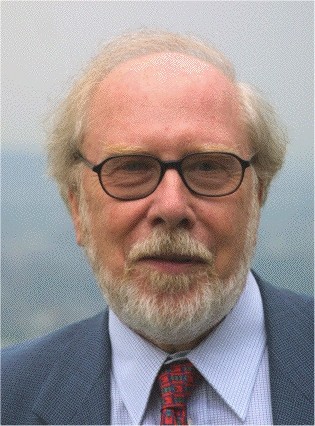 Prof. Niklaus Wirth Prof. Niklaus WirthBiography Niklaus Wirth was born in Winterthur, Switzerland, in 1934. He studied electrical engineering at ETH (Federal Institute of Technology) in Zürich, graduated in 1959, received an M.Sc. degree from Laval University in Quebec, and a Ph.D. from the University of California at Berkeley in 1963. Niklaus Wirth was born in Winterthur, Switzerland, in 1934. He studied electrical engineering at ETH (Federal Institute of Technology) in Zürich, graduated in 1959, received an M.Sc. degree from Laval University in Quebec, and a Ph.D. from the University of California at Berkeley in 1963.Wirth has been an Assistant Professor of Computer Science at Stanford University (1963-67) and, after his return to Switzerland, a Professor of Informatics at ETH from 1968 – 1999. His principal areas of contribution were programming languages and methodology, software engineering, and design of personal workstations. He has designed the programming languages Algol W (1965), Pascal (1970), Modula-2 (1979), and Oberon (1988), was involved in the methodologies of Structured Programming and Stepwise Refinement, and designed and built the workstations Lilith, with high-resolution display, mouse, and high-level language compiler in 1980, and Ceres in 1986. He has published several text books for courses on programming, algorithms and data structures, and logical design of digital circuits. He has received many prizes and honorary doctorates, including the Turing Award (1984), the IEEE Computer Pioneer (1988), the Award for outstanding contributions to Computer Science Education (acm 1987), and the IBM Europe Science and Technology Award in 1989. Prof. Wirth’s website: www.inf.ethz.ch/personal/wirth Turing Award Winner | The Oberon System on a Field-Programmable Gate Array (FPGA)
| Jan. 20, 2015 4:00 p.m. | RRS905 |
Computers and Computing in the Early Years
| Jan. 23, 2015 4:00 p.m. | RRS905 | |
The HDL Lola and its Translation to Verilog
| Jan. 27, 2015 4:00 p.m. | RRS905 | |
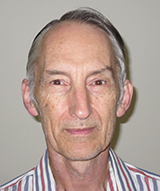 Prof. Richard P. Brent Prof. Richard P. BrentBiography In 1978, Richard Brent was appointed Foundation Professor of Computer Science at ANU, and in 1985, he became Professor and Head of the Computer Sciences Laboratory in the Research School of Physical Sciences at ANU. In 1998, he moved to Oxford as Statutory Professor of Computing Science and Fellow of St Hugh's College. In March 2005, he returned to ANU to take up a 5-year position as an ARC Federation Fellow in the Mathematical Sciences Institute (MSI) and the Research School of Information Sciences and Engineering. In March 2010, he became a Distinguished Professor with a joint appointment in MSI and the School of Computer Science. Since Sept. 2011, he has been an Emeritus Professor at ANU and a Conjoint Professor at the University of Newcastle. He is a Fellow of the ACM, IEEE, SIAM, the Australian Academy of Science, and various other professional bodies. In 1978, Richard Brent was appointed Foundation Professor of Computer Science at ANU, and in 1985, he became Professor and Head of the Computer Sciences Laboratory in the Research School of Physical Sciences at ANU. In 1998, he moved to Oxford as Statutory Professor of Computing Science and Fellow of St Hugh's College. In March 2005, he returned to ANU to take up a 5-year position as an ARC Federation Fellow in the Mathematical Sciences Institute (MSI) and the Research School of Information Sciences and Engineering. In March 2010, he became a Distinguished Professor with a joint appointment in MSI and the School of Computer Science. Since Sept. 2011, he has been an Emeritus Professor at ANU and a Conjoint Professor at the University of Newcastle. He is a Fellow of the ACM, IEEE, SIAM, the Australian Academy of Science, and various other professional bodies.Australian National University | Some Mysteries of Multiplication, and How to Generate Random Factored Integers
| Feb. 6, 2015 2:30 p.m. | RRS905 |
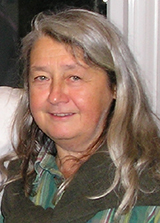 Prof. Maria Gini Prof. Maria GiniBiography Maria Gini is a Professor in the Department of Computer Science and Engineering at the University of Minnesota. She specializes in robotics and Artificial Intelligence. Specifically she studies decision making for autonomous agents in a variety of applications and contexts, ranging from distributed methods for task allocation, robot exploration, and teamwork. She also works on agent-based economic predictions for supply-chain management, for which she won the 2012 INFORMS Design Science Award with her Ph.D. student Wolf Ketter and colleagues. She is a Fellow of AAAI, a Distinguished Professor of the College of Science and Engineering at the University of Minnesota, and the winner of numerous University awards. Maria Gini is a Professor in the Department of Computer Science and Engineering at the University of Minnesota. She specializes in robotics and Artificial Intelligence. Specifically she studies decision making for autonomous agents in a variety of applications and contexts, ranging from distributed methods for task allocation, robot exploration, and teamwork. She also works on agent-based economic predictions for supply-chain management, for which she won the 2012 INFORMS Design Science Award with her Ph.D. student Wolf Ketter and colleagues. She is a Fellow of AAAI, a Distinguished Professor of the College of Science and Engineering at the University of Minnesota, and the winner of numerous University awards.University of Minnesota | New Challenges in Multi-robot Task Allocation
| Feb. 11, 2015 10:00 a.m. | RRS905 |
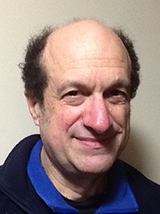 Prof. Daniel Boley Prof. Daniel BoleyBiography Daniel Boley received his Ph.D. degree in Computer Science from Stanford University in 1981. Since then, he has been on the faculty of the Department of Computer Science and Engineering at the University of Minnesota, where he is now a full professor. Dr. Boley is known for his past work on numerical linear algebra methods for control problems, parallel algorithms, iterative methods for matrix eigenproblems, inverse problems in linear algebra, as well as his more recent work on computational methods in statistical machine learning, data mining, and bioinformatics. His current interests include scalable algorithms for convex optimization in machine learning, the analysis of networks and graphs such as those arising from metabolic biochemical networks and networks of wireless devices. He is an associate editor for the SIAM Journal of Matrix Analysis and has chaired several technical symposia at major conferences. Daniel Boley received his Ph.D. degree in Computer Science from Stanford University in 1981. Since then, he has been on the faculty of the Department of Computer Science and Engineering at the University of Minnesota, where he is now a full professor. Dr. Boley is known for his past work on numerical linear algebra methods for control problems, parallel algorithms, iterative methods for matrix eigenproblems, inverse problems in linear algebra, as well as his more recent work on computational methods in statistical machine learning, data mining, and bioinformatics. His current interests include scalable algorithms for convex optimization in machine learning, the analysis of networks and graphs such as those arising from metabolic biochemical networks and networks of wireless devices. He is an associate editor for the SIAM Journal of Matrix Analysis and has chaired several technical symposia at major conferences.University of Minnesota | Optimization in Machine Learning
| Feb. 11, 2015 11:30 a.m. | RRS905 |
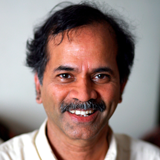 Prof. Rama Chellappa Prof. Rama ChellappaBiography Prof. Rama Chellappa received the B.E. (Hons.) degree in Electronics and Communication Engineering from the University of Madras, India in 1975 and the M.E. (with Distinction) degree from the Indian Institute of Science, Bangalore, India in 1977. He received the M.S.E.E. and Ph.D. Degrees in Electrical Engineering from Purdue University, West Lafayette, IN, in 1978 and 1981 respectively. During 1981-1991, he was a faculty member in the department of EE-Systems at University of Southern California (USC). Since 1991, he has been a Professor of Electrical and Computer Engineering (ECE) and an affiliate Professor of Computer Science at University of Maryland (UMD), College Park. He is also affiliated with the Center for Automation Research, the Institute for Advanced Computer Studies (Permanent Member) and is serving as the Chair of the ECE department. In 2005, he was named a Minta Martin Professor of Engineering. His current research interests are face recognition, clustering and video summarization, 3D modeling from video, image and video-based recognition of objects, events and activities, dictionary-based inference, compressive sensing, domain adaptation and hyper spectral processing. Prof. Rama Chellappa received the B.E. (Hons.) degree in Electronics and Communication Engineering from the University of Madras, India in 1975 and the M.E. (with Distinction) degree from the Indian Institute of Science, Bangalore, India in 1977. He received the M.S.E.E. and Ph.D. Degrees in Electrical Engineering from Purdue University, West Lafayette, IN, in 1978 and 1981 respectively. During 1981-1991, he was a faculty member in the department of EE-Systems at University of Southern California (USC). Since 1991, he has been a Professor of Electrical and Computer Engineering (ECE) and an affiliate Professor of Computer Science at University of Maryland (UMD), College Park. He is also affiliated with the Center for Automation Research, the Institute for Advanced Computer Studies (Permanent Member) and is serving as the Chair of the ECE department. In 2005, he was named a Minta Martin Professor of Engineering. His current research interests are face recognition, clustering and video summarization, 3D modeling from video, image and video-based recognition of objects, events and activities, dictionary-based inference, compressive sensing, domain adaptation and hyper spectral processing.Prof. Chellappa received an NSF Presidential Young Investigator Award, four IBM Faculty Development Awards, an Excellence in Teaching Award from the School of Engineering at USC, and two paper awards from the International Association of Pattern Recognition (IAPR). He is a recipient of the K.S. Fu Prize from IAPR. He received the Society, Technical Achievement and Meritorious Service Awards from the IEEE Signal Processing Society. He also received the Technical Achievement and Meritorious Service Awards from the IEEE Computer Society. At UMD, he was elected as a Distinguished Faculty Research Fellow, as a Distinguished Scholar-Teacher, received an Outstanding Innovator Award from the Office of Technology Commercialization, and an Outstanding GEMSTONE Mentor Award from the Honors College. He received the Outstanding Faculty Research Award and the Poole and Kent Teaching Award for Senior Faculty from the College of Engineering. In 2010, he was recognized as an Outstanding ECE by Purdue University. He is a Fellow of IEEE, IAPR, OSA and AAAS. He holds four patents. Prof. Chellappa served as the Editor-in-Chief of IEEE Transactions on Pattern Analysis and Machine Intelligence. He has served as a General and Technical Program Chair for several IEEE international and national conferences and workshops. He is a Golden Core Member of the IEEE Computer Society and served as a Distinguished Lecturer of the IEEE Signal Processing Society. Recently, he completed a two-year term as the President of the IEEE Biometrics Council. University of Maryland, College Park | Is Computer Vision Pattern Recognition by a Different Name?
| Mar. 26, 2015 10:30 a.m. | RRS905 |
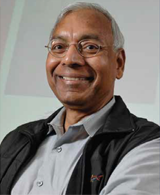 Prof. Anil K. Jain Prof. Anil K. JainBiography Anil K. Jain is a University Distinguished Professor in the Department of Computer Science & Engineering at Michigan State University. He was appointed an Honorary Professor at Tsinghua University and WCU Distinguished Professor at Korea University. He received B.Tech. degree from the Indian Institute of Technology, Kanpur (1969) and M.S. and Ph.D. degrees from Ohio State University in 1970 and 1973, respectively. His research interests include pattern recognition, computer vision and biometric recognition. His articles on biometrics have appeared in Scientific American, Nature, IEEE Spectrum, Comm. ACM, IEEE Computer1,2, Proc. IEEE1,2, Encarta, Scholarpedia, and MIT Technology Review. Anil K. Jain is a University Distinguished Professor in the Department of Computer Science & Engineering at Michigan State University. He was appointed an Honorary Professor at Tsinghua University and WCU Distinguished Professor at Korea University. He received B.Tech. degree from the Indian Institute of Technology, Kanpur (1969) and M.S. and Ph.D. degrees from Ohio State University in 1970 and 1973, respectively. His research interests include pattern recognition, computer vision and biometric recognition. His articles on biometrics have appeared in Scientific American, Nature, IEEE Spectrum, Comm. ACM, IEEE Computer1,2, Proc. IEEE1,2, Encarta, Scholarpedia, and MIT Technology Review. He has received Guggenheim fellowship, Humboldt Research award, Fulbright fellowship, IEEE Computer Society Technical Achievement award, IEEE W. Wallace McDowell award, IAPR King-Sun Fu Prize, IEEE ICDM Research Contribution Award, IAPR Senior Biometric Investigator Award, and the MSU Withrow Teaching Excellence Award for contributions to pattern recognition and biometrics. He is a Fellow of the ACM, IEEE, AAAS, IAPR and SPIE. He has been listed among the "18 Indian Minds Who are Doing Cutting Edge Work" in the fields of science and technology, and felicitated with the MSU 2014 Innovator of the Year Award. Anil Jain has been assigned six U.S. patents on fingerprint recognition (transferred to IBM in 1999) and two Korean patents on surveillance. He has also licensed technologies to Safran Morpho, world's leading biometric company, that deal with law enforcement and homeland security applications. He was a consultant to India's Aadhaar program that provides a 12-digit unique ID number to Indian residents based on their fingerprint and iris data. He is currently serving as an advisor to the Brazilian National ID project. He currently serves as a member of the Forensic Science Standards Board and is co-organizing a program on Forensics (2015-2016) at the Statistical and Mathematical Sciences Institute (SAMSI). Refer to his homepage: http://www.cse.msu.edu/~jain/. Michigan State University | Biometric Recognition: Technology for Human Recognition
| Apr. 22, 2015 3:30 p.m. | RRS905 |
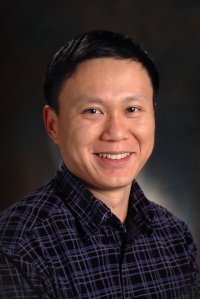 Prof. Jian Pei Prof. Jian PeiBiography Jian Pei is currently the Canada Research Chair (Tier 1) in Big Data Science and a professor at the School of Computing Science and the Department of Statistics and Actuarial Science at Simon Fraser University, Canada. He received his Ph.D. degree at the same school in 2002 under Dr. Jiawei Han’s supervision. His research interests are to develop effective and efficient data analysis techniques for novel data intensive applications. He has published prolifically and is one of the top cited authors in data mining. He received a series of prestigious awards. He is also active in providing consulting service to industry and transferring the research outcome in his group to industry and applications. He is an editor of several esteemed journals in his areas and a passionate organizer of the premier academic conferences defining the frontiers of the areas. He is an IEEE Fellow. Jian Pei is currently the Canada Research Chair (Tier 1) in Big Data Science and a professor at the School of Computing Science and the Department of Statistics and Actuarial Science at Simon Fraser University, Canada. He received his Ph.D. degree at the same school in 2002 under Dr. Jiawei Han’s supervision. His research interests are to develop effective and efficient data analysis techniques for novel data intensive applications. He has published prolifically and is one of the top cited authors in data mining. He received a series of prestigious awards. He is also active in providing consulting service to industry and transferring the research outcome in his group to industry and applications. He is an editor of several esteemed journals in his areas and a passionate organizer of the premier academic conferences defining the frontiers of the areas. He is an IEEE Fellow.Simon Fraser University | Big Data for Everyone
| Jun. 18, 2015 4:00 p.m. | RRS905 |
| Copyright © 2025 Department of Computer Science, Hong Kong Baptist University. All rights reserved. Privacy Policy |
HKBU |
COMP |
Contact Us |

|